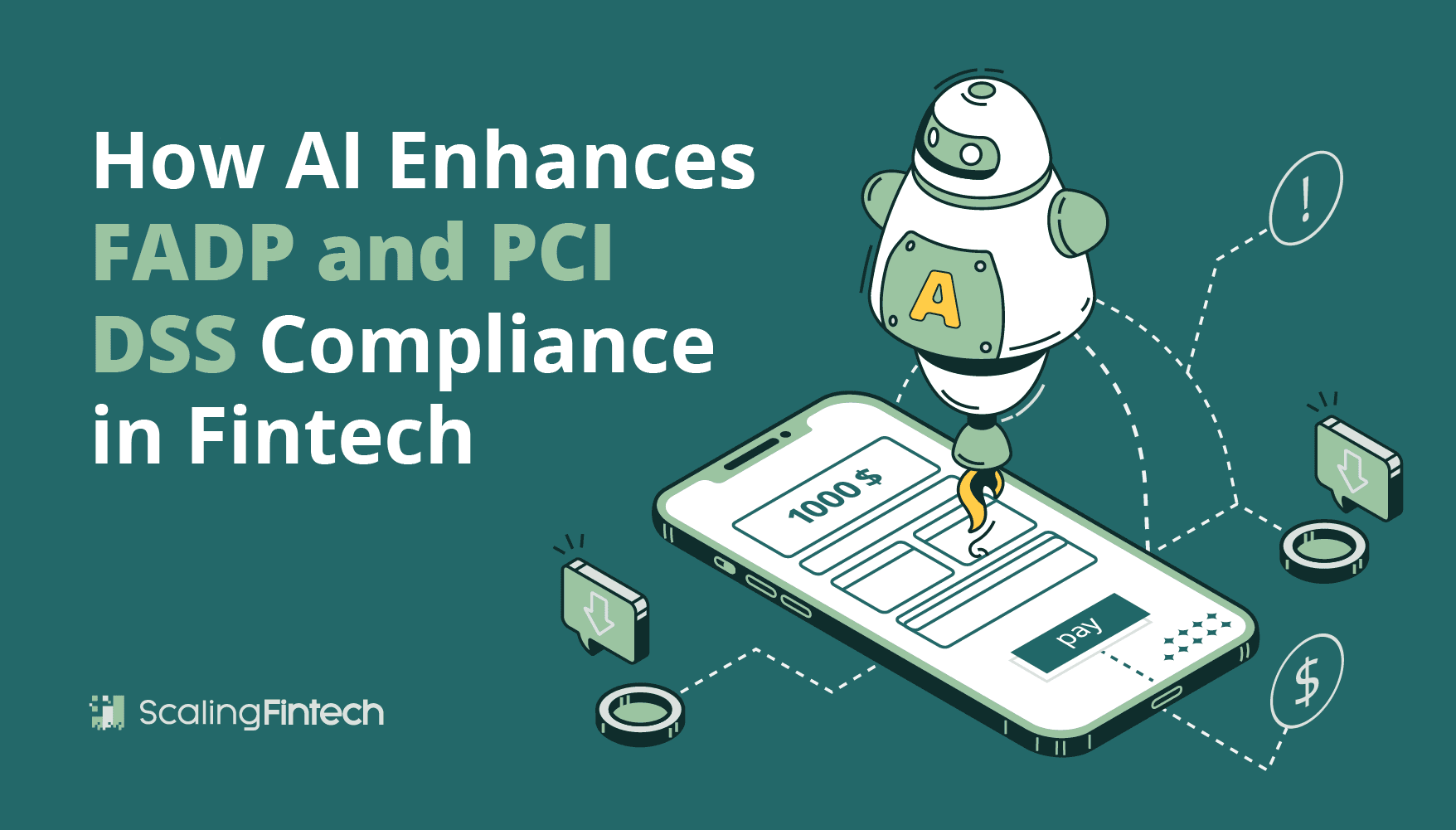Find out how AI can help fintech companies follow FATF rules. It’s important for fintechs to prevent money laundering and terrorist financing. FATF sets global standards that keep the financial system safe.
Following these rules helps fintechs grow and maintain their good reputation. As regulations become stricter, fintechs need efficient ways to meet compliance needs. This includes using strong anti-money laundering (AML) technology and following the FATF’s 40 recommendations. AI-powered methods can help with important tasks like customer checks, tracking transactions, and managing AML programs.
This guide will show how fintechs can use AI tools and practical ideas to meet FATF standards while improving efficiency and tackling compliance challenges.
Understanding FATF and Its Impact on Fintech
FATF is an international organization that creates standards to protect financial systems from criminal activities. FATF compliance is critical for AML CTF (anti-money laundering and counter-terrorist financing) practices, affecting fintech operations in onboarding, transaction monitoring, and reporting. Understanding these requirements is crucial for effective fintech compliance.
Key Requirements for FATF Compliance in Fintech
- AML CTF Programs: Set clear policies, control frameworks, and ensure internal audits.
- Customer Due Diligence (CDD): Verify customer identities and assess risk, incorporating Know Your Customer (KYC) principles.
- Transaction Monitoring & SAR (Suspicious Activity Reporting): Detect suspicious transactions and report them, including cross-border transactions.
- Regular Updates & Training: Keep policies current and train staff on the latest fintech compliance regulations.
- Cross-Border Payment Monitoring: Manage international transaction risks and comply with FATF recommendation 16.
To meet these requirements, fintechs need strong technology to support real-time monitoring, identity verification, and data security, helping build customer trust and prevent financial crime. This is where digital AML solutions and anti money laundering analytics play a crucial role.
Key FATF Compliance Requirements for Fintech
A structured approach is necessary for effective compliance with FATF standards:
1. Implementing AML CTF Programs
A robust AML CTF program is the foundation of FATF compliance. Key elements include:
- Appointing a Money Laundering Reporting Officer (MLRO)
- Creating clear AML CTF policies and controls
- Training staff on compliance obligations and processes
- Establishing internal controls and regular audits to assess effectiveness
2. Customer Due Diligence (CDD) and Enhanced Due Diligence (EDD)
CDD verifies customer identities and assesses their risk levels. EDD involves deeper checks and monitoring for higher-risk clients. This process often incorporates Know Your Customer (KYC) procedures and may extend to know your country assessments for international clients.
Actionable Tip: Automate CDD processes with AI to make identity verification faster and more accurate, improving onboarding efficiency and enhancing FinTech regulatory compliance.
3. Transaction Monitoring and Suspicious Activity Reporting (SAR)
Transaction monitoring helps detect unusual patterns, and SAR filing enables fintechs to report suspicious activities to regulatory authorities. This is a critical component of fintech and money laundering prevention efforts.
- Example: AI-based transaction monitoring tools can detect transactions just below reporting thresholds, alerting compliance teams in real time and supporting continuous monitoring efforts.
4. Risk Assessment and Policy Updates
Regular risk assessments ensure compliance efforts are up-to-date. Risk levels help define monitoring needs, as shown in this simplified framework:
| Risk Level | Frequency | Actions |
| High | Monthly | Enhanced monitoring and records |
| Medium | Quarterly | Standard monitoring |
| Low | Annually | Routine updates and reviews |
Summary: Regular updates and risk assessments help fintechs adapt to new FATF guidelines and prevent emerging threats, ensuring robust fintech risk and compliance management.
Leveraging AI for FATF Compliance

AI technology simplifies compliance by automating complex tasks, enhancing accuracy, and reducing manual workload. The integration of ethical AI in compliance processes is becoming increasingly important for fintech companies.
AI-Powered Customer Identity Verification
AI-powered identity verification can streamline onboarding by verifying IDs, analyzing biometrics, and cross-referencing databases, enhancing Know Your Customer (KYC) processes.
- Example: A fintech offering loans uses AI to automatically verify customer identities, reducing manual errors and speeding up the process.
Tip: Use AI-driven biometric verification to ensure quick, accurate identity checks without increasing the workload for compliance teams.
Machine Learning for Transaction Monitoring
Machine learning (ML) algorithms improve transaction monitoring by learning from historical data, enabling continuous improvements in fraud detection and supporting digital AML efforts.
- Benefits of ML:
- Real-time anomaly detection
- Adapts to evolving money laundering techniques
- Reduces false positives, saving compliance teams time
Actionable Tip: Use ML-based transaction monitoring to focus on genuine risks and prevent resource drain from false alerts, enhancing overall fraud prevention capabilities.
Natural Language Processing for Adverse Media Screening
Natural Language Processing (NLP) helps analyze unstructured data from global media sources, identifying potential customer-related risks and supporting continuous monitoring efforts.
- Benefits:
- Monitors diverse sources in multiple languages
- Detects high-risk associations with adverse media
- Automates updates to customer risk profiles
Example: NLP tools monitor news and flag high-risk customers based on negative media mentions, allowing teams to respond promptly to potential compliance issues.
Predictive Analytics for Risk Assessment
Predictive analytics help fintech proactively address compliance risks, as illustrated below:
| Risk Component | AI Capability | Benefit |
| Customer Behavior | Pattern Recognition | Early detection of risks |
| Market Trends | Predictive Modeling | Proactive compliance |
| Regulatory Changes | Automated Adaptation | Quick adjustments |
Summary: Predictive analytics allow fintechs to anticipate risks, improving compliance and resource management in the context of fintech regulatory compliance.
Implementing an AI-Driven FATF Compliance Strategy
An AI-driven FATF compliance strategy requires careful planning and alignment with current systems, incorporating compliance technology and RegTech solutions.
1. Assess Current Compliance Gaps
Review your existing compliance framework to identify areas that could benefit from AI automation. Key areas to assess:
- Transaction monitoring
- CDD accuracy
- SAR reporting efficiency
2. Selecting the Right AI Technologies
Choosing suitable AI tools is essential for an effective compliance strategy. Consider the following criteria:
| Criteria | Description | Priority |
| Scalability | Can it grow with operations? | High |
| Integration | Works with existing systems? | Critical |
| Data Security | Does it meet privacy requirements? | Essential |
| Cost-Effectiveness | Provides value for investment? | Important |
Tip: Start with pilot programs in less critical areas to test AI solutions and scale up as needed, considering the implementation of regulatory sandboxes for innovative compliance solutions.
3. Training Staff on AI-enhanced compliance
A comprehensive training program ensures your team understands how to use AI tools effectively. Training topics should include:
- Understanding AI-generated insights
- Interpreting alerts and reports
- Managing exceptions and system updates
Actionable Tip: Offer detailed AI training modules to enhance compliance processes and improve team understanding of AI tools, focusing on both AML technology and fintech compliance requirements.
Real-World Examples of FATF Compliance in Fintech
Learning from successful fintechs that use AI to meet FATF compliance can be valuable, especially in addressing challenges related to fintech and money laundering.
Case Study: N26’s Compliance Transformation
In 2019, N26 faced compliance challenges that led to a €4.25 million fine. By adopting AI-powered tools, the company improved compliance processes, particularly in CDD and transaction monitoring.
Lessons Learned:
- AI reduces human error in transaction monitoring
- Automated tools streamline customer verification
- Detailed compliance frameworks support regulatory alignment
Key Takeaways for Fintech Marketers
| Area | AI Solution | Benefit |
| Customer Verification | Automated ID Verification | Faster onboarding |
| Transaction Monitoring | ML-Based Detection | Reduced false positives |
| Risk Assessment | Predictive Analytics | Enhanced risk management |
| Regulatory Reporting | Automated SAR Filing | Improved reporting accuracy |
How Scaling FinTech Can Help with Financial Action Task Force (FATF) Compliance
Scaling FinTech offers AI-driven, FATF-compliant advertising solutions specifically designed to meet the unique regulatory needs of fintech companies. Our strategies focus on lead generation, conversions, and sustainable growth, all while maintaining strict adherence to FATF standards on data protection, AML, and compliance.
Why Partner with Scaling FinTech?
- Precision: Customized campaigns aligned with both growth and FATF compliance goals.
- Transparency: Real-time reporting gives full visibility into campaign performance and compliance.
- Client-Centric Growth: Our strategies prioritize impact and ROI, with FATF compliance as a core foundation.
Ready to Strengthen Your Compliance Strategy? Take the next step in safeguarding your fintech business. Schedule a Compliance Consultation with Scaling FinTech to explore tailored, AI-powered ad solutions that promote secure, compliant growth while building your brand’s reputation.
Conclusion
AI-powered solutions make FATF compliance more manageable for fintech companies by improving efficiency in CDD, transaction monitoring, and risk assessment. Implementing these solutions strategically can reduce costs, increase compliance accuracy, and streamline operations, addressing key aspects of fintech risk and compliance.
Final Takeaway: Combining AI tools with human oversight ensures effective FATF compliance, allowing AI to handle repetitive tasks while human judgment addresses complex decisions. This approach is crucial for navigating the complexities of fintech regulatory compliance and cryptocurrency compliance.
Interested in AI-powered solutions for FATF compliance? Contact Scaling FinTech to see how we can help your fintech meet regulatory standards and implement robust compliance technology.
FAQs
Can AI enhance AML efforts? Yes, AI can detect complex patterns that traditional AML systems might miss, improving compliance and supporting digital AML initiatives.
What steps should a country take to implement FATF recommendations? Adopting a risk-based approach enables countries to prioritize resources for AML CTF risks, aligning with the FATF 40 recommendations.
How does AI help combat financial crime? AI tools allow financial institutions to monitor transactions, assess risks, and detect fraud more effectively, enhancing overall fraud prevention capabilities.
What is Google’s AI tool for AML? Google Cloud offers an AML AI product that enhances AML accuracy and reduces false positives, contributing to the advancement of anti-money laundering analytics.




